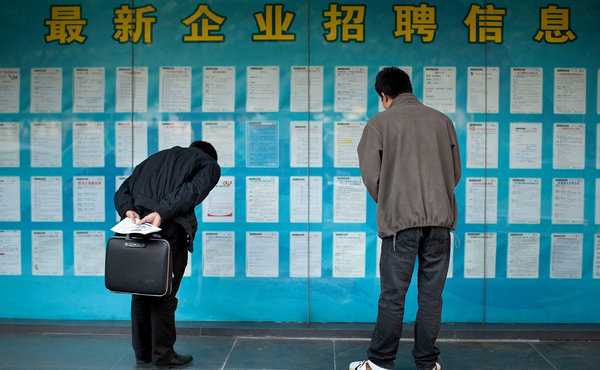China: The race up the production/development/political ladder is on!
 Monday, January 28, 2013 at 9:18AM
Monday, January 28, 2013 at 9:18AM 
Wow, that took a long time!
Recall my recent post on China's college graduates (8m strong per year) and their expectations.
Right on cue, the NYT runs another front-pager that follows the logic up nicely: "With diplomas, Chinese reject jobs in factory."
This is the development conundrum in a nutshell for the single-party state: you give the people what they want (factory jobs that generate income so people moving off the land can make it in the city and send their kids to college) and then they just want more - in the form of those college kids. And the more they want and you provide and they accomplish and achieve, the more they're running their own complex lives and get tired of hearing how only the one party and the one way are acceptable.
Best example of this was South Korea in the 1990s - four decades of essentially single-party rule and then things got a bit tumultuous. But now look at South Korea - a second-tier great power on the move and becoming a soft-power exporter (Psy's hilarious and catchy "Gangnam Style" is just the hardest door-knocker of the burgeoning flow; personally I love the horror movies best) in addition to being a powerhouse product exporter. In many ways, China wants to replicate South Korea's path. It's just the Party that assumes it can (or should) be done in a single-party format.
But yes, all the same tipping points eventually get reached. The size differential isn't key; it's a matter of generational turnover, and this article is a big pointer in this regard: college grads who turn down their noses on factory jobs.
There's no turning back at this point: China's future evolutions are already a fait accompli. The only thing left for the West is to NOT screw it up, which typically occurs whenever we freak out over perceived "gaps" or "being passed by" or other such declinist nonsense.
The "victory," if you need such things, has already been won. And we have Deng Xiaoping to thank for that.
China must live in the real world of its own making. It cannot exist in the imaginary balance-of-power environments posited by the realists - on either side of the Pacific. That real world of its own making forces very hard compromises.
And they are just beginning across China.
 China,
China,  democracy,
democracy,  demographics,
demographics,  development,
development,  global trends | in
global trends | in  Citation Post |
Citation Post |  Email Article |
Email Article |  Permalink |
Permalink |  Print Article
Print Article 









Reader Comments (1)
I would like to draw your attention to this story on pollution in New Delhi: http://india.blogs.nytimes.com/2013/01/31/you-think-the-air-in-beijing-is-bad-try-new-delhi/
India has an even worse problem with pollution than China, and going by the performance of "democratic politics" in India, even less likelihood of solving its critical problems.
I understand, you are American and Americans love democracy. Some of us non-Americans are pretty ambivalent about it, because to us it offers no real benefits (I am typing from Lagos, Nigeria).
India is what democracy looks like in a nation of 1 billion and no right-thinking Chinese would look at India and say "I want India's democracy". South Korea, Taiwan etc are nowhere near the SCALE of China.
The Chinese people want more freedom of expression (they will get that), but they also want stability (the CPC's strong selling point). The Chinese will evolve to a system that provides both, but it need not be democracy.
And when they do, many of us in Africa will be best advised to adopt it - as this "democracy" thing isn't really working.